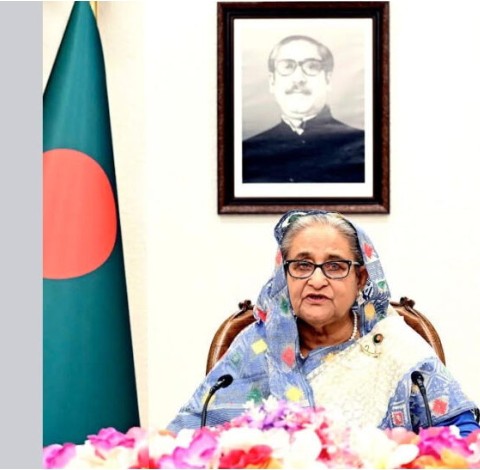“Most climate displacements take place within national borders and across borders in some dire situations,” she said.
The prime minister said this in a video statement that was played at the high-level segment on “Climate Impact on Human Mobility: A Global Call for Solutions” during the 114th Session of the International Organisation for Migration (IOM) Council held virtually.
She said it is estimated that climate change could displace 216 million people by 2050. Among these, 40 million alone would be in South Asia. In Bangladesh, 20 per cent of its population lives along the coastal belt.
“Sea-level rise, salinity intrusion, frequent floods, and severe cyclones make them vulnerable to forced displacement. Such displacements are happening at a faster pace than we think,” she warned.
She said that those displaced or trapped due to climate change need to have access to basic services, social protection, and livelihood options.
“The adverse impacts on their host communities also need to be addressed in an inclusive manner,” she said.
Bangladesh, she said, bears the burden of hosting 1.2 million forcibly displaced Rohingyas from Myanmar in its coastal district of Cox’s Bazar.
“Some of these people fall victim to trafficking networks with security risks for the entire region. Such mixed migration flows make the issue of climate mobility even more problematic,” she added.
The prime minister reaffirmed Bangladesh’s position that the impact of climate change on human mobility should be placed high on the international agenda.
She also said that Bangladesh is working together with IOM and other partners to highlight the need for effective solutions.






































